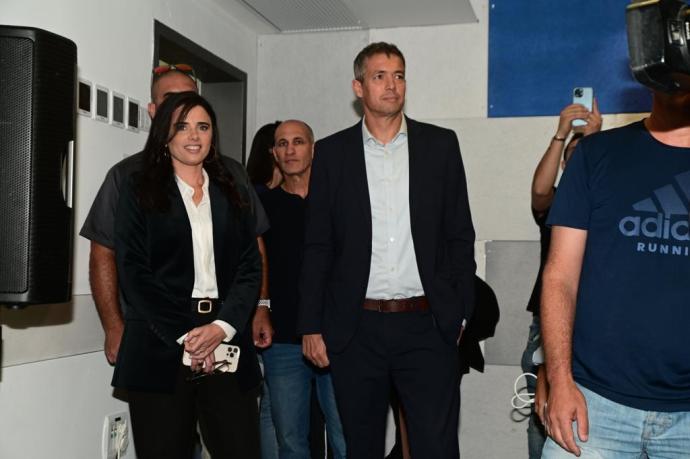According to Communications Minister Yoaz Hendel, former prime minister and Likud leader Benjamin Netanyahu was the source of Israel’s political instability, and the only solution is to form a unity government.
“For the past three years, there has been political chaos,” Hendel said at The Jerusalem Post’s New York conference on Monday.
“I need to find solutions,” he explained. “For the past three years, we tried to find solutions. I tried to get the Haredim to join the government. I tried to get my friends in the Likud to change the coalition. And, since I failed all that, the only solution is to take all the big Zionist parties and form a unity government. If it doesn’t happen this time, then it’ll happen in the future. It’s impossible to manage this state without a unity government.”
Hendel and Interior Minister Ayelet Shaked announced on July 27 that they would run together, but that partnership ended on Sunday. With Thursday’s deadline for submitting lists fast approaching, Hendel has some tough decisions to make, but he still sees himself as a representative of the moderate Right.
“I will leave today, go to Israel and make decisions very soon,” he said. “I think the moderate Right should have a home. I would love to represent them and I think the moderate Right should be able to [have] influence.”

“I believe in the moderate Right,” Hendel added. “I also believe this group is responsible for establishing the last government. There is a view like that in Israel. Since I’m there, and I don’t know how to do anything else, I think we need to build it again.”
"I believe in the moderate Right. I also believe this group is responsible for establishing the last government. There is a view like that in Israel. Since I’m there, and I don’t know how to do anything else, I think we need to build it again."
Communications Minister Yoaz Hendel
Hendel has a clear ideology when it comes to Israel's haredi population.
“First of all, I think integrating the haredi schools in Israel is a huge mission and no one can ignore it. The fact that Netanyahu canceled the core studies is a shame,” Hendel said, referring to a decision by Netanyahu to offer the Belz hassidim funding in the next government if it agreed to back out of a plan offered by the Education Ministry that included core secular studies.
“I think our haredi brothers should be part of Israeli democracy, so we need to give them the same duties and rights,” Hendel said. “Without making those decisions, we have to tell them that there are no autonomies in Israel. You need to strengthen the common ground for all tribes in Israel. For that reason, I think everyone should learn with the same curriculum. Everyone should learn mathematics, Tanach and English.”
The freedom of choice also accompanied his work at the Communications Ministry.
“The haredim in Israel also deserve competition and the ability to control their own lives, based on communication and other infrastructure, and it’s impossible to let haredi representatives stop them from speaking for themselves,” he said.
Hendel recalled an argument he had with Shas party leader and former MK Arye Deri.
“I once had a big debate with Arye Deri about fiber cables in haredi neighborhoods,” he said. “He never signed it because he was worried the fiber would get into haredi houses. This is a terrible way to limit the haredi ability to find jobs and get decent salaries. I think the State of Israel should interfere and ministers should work hard to integrate haredim into the labor circle and [into] Israeli society.”
When asked what his greatest achievement in office was, Hendel did not hesitate.
“We deployed optic fibers all over Israel,” he said. “When I took office, we had just 2% connectivity of fiber cables. Today, we have over 70%. To explain [this], high-speed internet means jobs. We are the fastest country in deploying fibers and the cheapest one.”